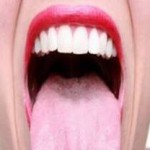 A reader with a bad breath problem wrote in a few months ago for advice. Without knowing anything more about him, my first impulse was to offer that perhaps his oral hygiene could use some improvement.
A reader with a bad breath problem wrote in a few months ago for advice. Without knowing anything more about him, my first impulse was to offer that perhaps his oral hygiene could use some improvement.
After all, the most obvious solution to any malady is 95% of the time going to be the right one. But sometimes, there are other causes for everyday problems, such as the one with which this reader was struggling.
There are a variety of things that can cause bad breath, even if you are a fastidious brusher and flosser.
One that tops the list right under hygiene and diet is dry mouth.
Called xerostomia, dry mouth is a condition marked by a whole host of frustrating, and even sometimes hidden, symptoms. They mimic dehydration in many ways, so understanding the difference can be tough.
Symptoms include:
Foamy or thick, stringy saliva
Bad breath
Dry, cracked lips
Problems speaking, chewing, and swallowing
Increased thirst
Receding gums
Digestion problems
Vaginal issues
Dry eyes and nose
Joint Pain
Muscular pain
Sufferers may even show alarmingly frequent secondary conditions that occur as a result of dry mouth, including yeast infections in the mouth and reproductive areas, increase in cavities and periodontal disease, and infections like bronchitis, laryngitis and pneumonia.
If you’ve narrowed your bad breath problem to dry mouth, then the next logical step is to look at the causes to see what could be setting this frustrating condition off.
The biggest factor is medication-related, and there is a whole laundry list of medications that contribute to dry mouth. If you are taking more than one at a time, then your likelyhood of developing dry mouth naturally increases.
Medications that cause dry mouth include those to treat:
Anxiety and depression
Diarrhea
Vomiting
Acne
Insomnia
Asthma
Muscle and joint pain
Congestion
High blood pressure
…and more.
When looking at the possible negative side effects of these medications, the really unnerving ones like coma, risk of bleeding, stroke, birth defects, or what have you, usually command the biggest portion of our attention.
We typically skim right over the ones that don’t seem as deadly like stomach upset, dizziness and dry mouth.
But if you separate each negative effect apart from the others and look at the risks associated with each on its own, the less critical ones suddenly become worrysome.
Dizziness can lead to car accidents, falls, and head injuries. Stomach upset, diarrhea and vomiting lead to dehydration an malnutrition.
Dry mouth leads to infections that can be life-threatening, especially for those with compromised immune systems anyway. Pneumonia is nothing to snicker at. Bronchitis in an asthmatic can land a guy in the hospital.
Here’s the rub- many of the problems from diseases that these medicines are designed to prevent are what make the side effects so much more problematic if the medications are taken in the first place.
It’s like a person can’t win.
 And we have to have stinky mouth on top of everything else?
And we have to have stinky mouth on top of everything else?
However, this is the place where you would normally see the comments regarding the virtues of getting off medications wherever possible, or at least seeing about getting the dosage reduced.
Well, I don’t want to disappoint. It is going to be critical for anyone who is suffering from the adverse effects of these medications- even if it’s just the “minor” side effects like dry mouth- to talk to the prescriber about pursuing natural methods.
As we age, more problems are going to crop up. I get that. It’s like every five years we have to add another pill to the cocktail we take every morning. But as we age, we are also less able to mitigate the damage caused by those very medications.
That’s why prevention is such a critical part of disease management. While safe products to reduce dry mouth (like Biotene) are out there to help reduce the effects of dry mouth, reducing or eliminating the problem the medication is designed to treat naturally is always going to be preferred over racing behind it with medications, trying in vain to catch up.
If you noticed any of the symptoms of dry mouth and you are not chemically dehydrated, it’s time to talk to the doctor about your prescription and over-the-counter medications. See what you can do together to reduce the dosages safely.
For easy and safe solutions to your blood pressure, arthritis, and insomnia problems, try my 100% natural guides today.
Warm regards,
Christian Goodman
El331005

 Multiple Sclerosis
Multiple Sclerosis Banishing Bronchitis
Banishing Bronchitis Gum Disease Gone
Gum Disease Gone Overcoming Onychomycosis
Overcoming Onychomycosis Neuropathy No More
Neuropathy No More The Prostate Protocol
The Prostate Protocol Brain Booster
Brain Booster
 Ironbound
Ironbound
 Solution for Shingles
Solution for Shingles
 The Bone Density Solution
The Bone Density Solution
 The Ultimate Healing Protocol
The Ultimate Healing Protocol
 The Parkinson's Protocol
The Parkinson's Protocol
 The Chronic Kidney Disease Solution
The Chronic Kidney Disease Solution
 Overthrowing Anxiety
Overthrowing Anxiety The Fatty Liver Solution
The Fatty Liver Solution The Hypothyroidism Solution
The Hypothyroidism Solution
 The End of Gout
The End of Gout The Blood Pressure Program
The Blood Pressure Program
 The Oxigized Cholesterol Strategy
The Oxigized Cholesterol Strategy
 Stop Snoring And Sleep Apnea Program
Stop Snoring And Sleep Apnea Program
 The Arthritis Strategy
The Arthritis Strategy The Vertigo & Dizziness Program
The Vertigo & Dizziness Program The 3-Step Diabetes Strategy
The 3-Step Diabetes Strategy Hemorrhoids Healing Protocol
Hemorrhoids Healing Protocol The Erectile Dysfunction Master
The Erectile Dysfunction Master Weight Loss Breeze
Weight Loss Breeze The IBS Program
The IBS Program The Insomnia Program
The Insomnia Program The Migraine and Headache Program
The Migraine and Headache Program The Neck Pain Solution
The Neck Pain Solution The Menopause Solution
The Menopause Solution The Ejaculation Master
The Ejaculation Master The TMJ Solution
The TMJ Solution The Acid Reflux Solution
The Acid Reflux Solution The Fibromyalgia Solution
The Fibromyalgia Solution The Psoriasis Strategy
The Psoriasis Strategy
My dry mouth occurs in the morning after a good nights sleep and I have come to the conclusin that I probably sleep on my back with my mouth open, so just keep a glass of water nearby to sip on and that cures it….also, probably because I take an evening pill that requires more water than usual – and have the usual “up at night” bathroom duties…..not a real problem…just a drink of water cures it…….
I just want to thank you for your artical on (dry mouth), as I have COPD, High Blood Pressuee and Asthma and take meds for bouth. And always wonderd why I could not talk when waking in the morning cause my mouth was so dry.
Thank you again. Estella
dry mouth caused by diuretcs can also cause loss of taste. I know…it happend to me.
Thank you for your e-mails. I find them very helpful, informative and most important…encouraging. d,n,g,/tags P,S. I somehow get 2 cc each e-mail– can you take one of my addresses off mail list?
Thank you for your interesting articles. I suffer from dry throat (not mouth)but think this could be caused by sleeping on my back and because it is the allergy season. Also, at the moment I use asthma puffers and they can cause a dry throat. It is the hay fever season and I sneeze a lot.
My wife suffered with the dry mouth problem for some time- and it was also aggravated by anti depresion and insomnia medications that she has been taking. Also she had some dental work done which contributed to this condition.
But she started Oil Pulling- 15 minutes twice a day- with sesame oil and this gave her tremendous relief. Oil Pulling also removes all toxins in the dental cavities, gums, mouth area and also detoxifies the body- and helps by lubricating the entire mouth. To be done first thing in the morning- on empty stomach- upon waking and in the evening -again on empty stomach- not after a heavy meal etc!!. For those interested in this therapy and its benefits for general health, please google: OIL PULLING- and you will get all details including methodology, types of oil to be used-sesame is the best- duration, and benefits for health etc..
SREEDHARAN J/INDIA
Thank you for your this email related dry mouth but I think my problem different that is sores/ulcers of my tongue and inside mouth.
I have dry mouth every morning and also have bad breath. What that shall I do?
Thank you.
Fereni
This report has been helpful- particularly the reply regarding Oil Pulling, I am totally going to look into that.